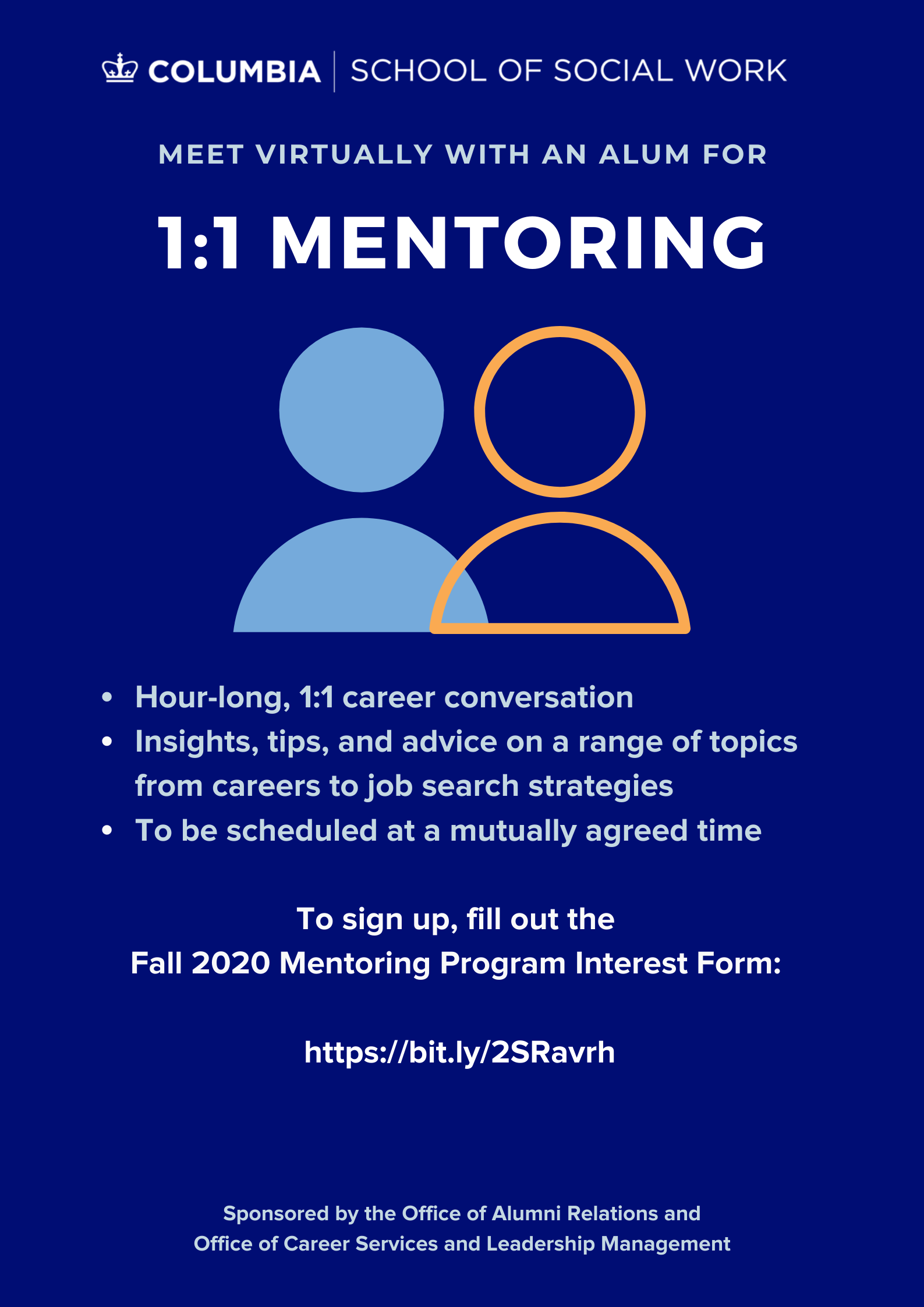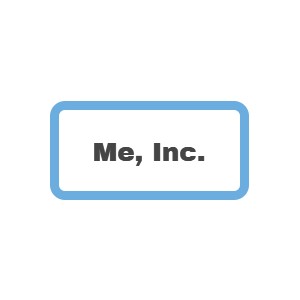The Office of Alumni Relations and Office of Career Services and Leadership Management are pleased to offer a special opportunity to meet virtually with alumni for career mentoring!
Mentoring Program Overview
Through this program, students can request to connect with up to 2 alums per month for 1:1 conversations to:
-
- Gain insights and perspectives about a career path, field, organization, or industry;
- Get advice about career planning, searching and applying for jobs (including resume writing), networking, interviewing, or navigating life after CSSW; OR
- Seek support in general from someone who’s been in your shoes as a student
Interested?
-
- Fill out this mentoring program interest form. On the form, you will find a link to a directory with a list of all available volunteer mentors. Select the one you’re interested in meeting. Note that you will have to complete this form for each request.
- After submitting the form, you will receive an email confirmation as well as an introductory email from Jennifer March from Alumni Relations connecting you to the alum of choice within 2 business days. If you don’t hear from Jennifer in that time frame, please email her at [email protected].
- Once you receive the email, it will be your responsibility to arrange a meeting directly with the alum using the contact information provided. While Zoom meetings are recommended, you can choose a platform that works best for both you and the alum.
Remember: This is NOT a forum to ask for a job or a recommendation for a job, but rather an opportunity to gather valuable information based on their knowledge and expertise.
After the initial meeting, it will be up to you and the alum to decide whether to stay in touch.
For more information, refer to our program overview.
Questions?



 Establishing your value and asking for more is not a selfish act, says Alexandra Carter, Director of the
Establishing your value and asking for more is not a selfish act, says Alexandra Carter, Director of the  With the world of work operating remotely, how do you stand out when the traditional means of making an impression, from networking events to coffee chats, no longer apply? Consider the framework of entrepreneurship.
With the world of work operating remotely, how do you stand out when the traditional means of making an impression, from networking events to coffee chats, no longer apply? Consider the framework of entrepreneurship.
 Last week, we welcomed four alumni to speak about their path to clinical social work at our virtual panel discussion, Journey to the “C”, which was co-sponsored by the Mental Health Caucus. The discussion covered an array of topics, including clinical supervision, Institute training, and interview preparation.
Last week, we welcomed four alumni to speak about their path to clinical social work at our virtual panel discussion, Journey to the “C”, which was co-sponsored by the Mental Health Caucus. The discussion covered an array of topics, including clinical supervision, Institute training, and interview preparation. Want to learn about organizations seeking to hire you for full-time opportunities? We have a number of employers visiting our campus over the next several weeks starting February 11 on Tuesdays from 1:00 to 1:50 PM.
Want to learn about organizations seeking to hire you for full-time opportunities? We have a number of employers visiting our campus over the next several weeks starting February 11 on Tuesdays from 1:00 to 1:50 PM.

 Regardless of whether these perceptions ring true, they don’t always represent how you may see yourself or hope to be seen. However, you have the power to change this.
Regardless of whether these perceptions ring true, they don’t always represent how you may see yourself or hope to be seen. However, you have the power to change this.